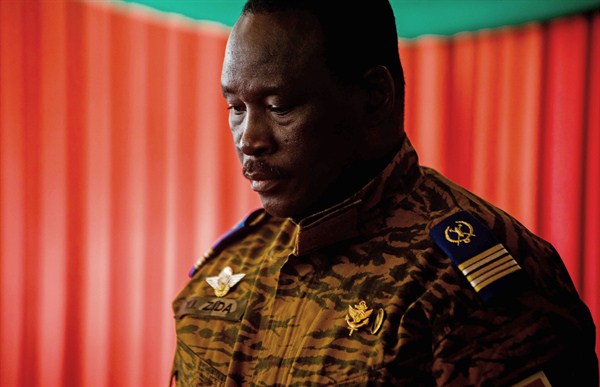Last week, opponents of Blaise Compaore, the long-serving de facto dictator of Burkina Faso, launched a series of demonstrations that have quickly led to a new government headed by Lt. Col. Isaac Zida. While this was a somewhat softer military coup than old-fashioned ones where officers marched civilian leaders out and shot them, it was a coup nonetheless. Washington is now scrambling to make sense of it.
While Compaore’s ouster might send a useful signal to other de facto dictators who have clung to power for decades, the way it happened did not bode well for Africa’s fragile grasp on democracy. Burkina Faso’s proximity to the home turf of two of the world’s nastiest extremist movements—Boko Haram and al-Qaida in the Islamic Maghreb (AQIM)—makes it even more troubling.
But the coup is also raising eyebrows because Zida attended counterterrorism and intelligence courses run by the United States, including one at McDill Air Force Base in Tampa. Thus it has become emblematic, reviving old questions about the participation of foreign officers in the American professional military educational system.

